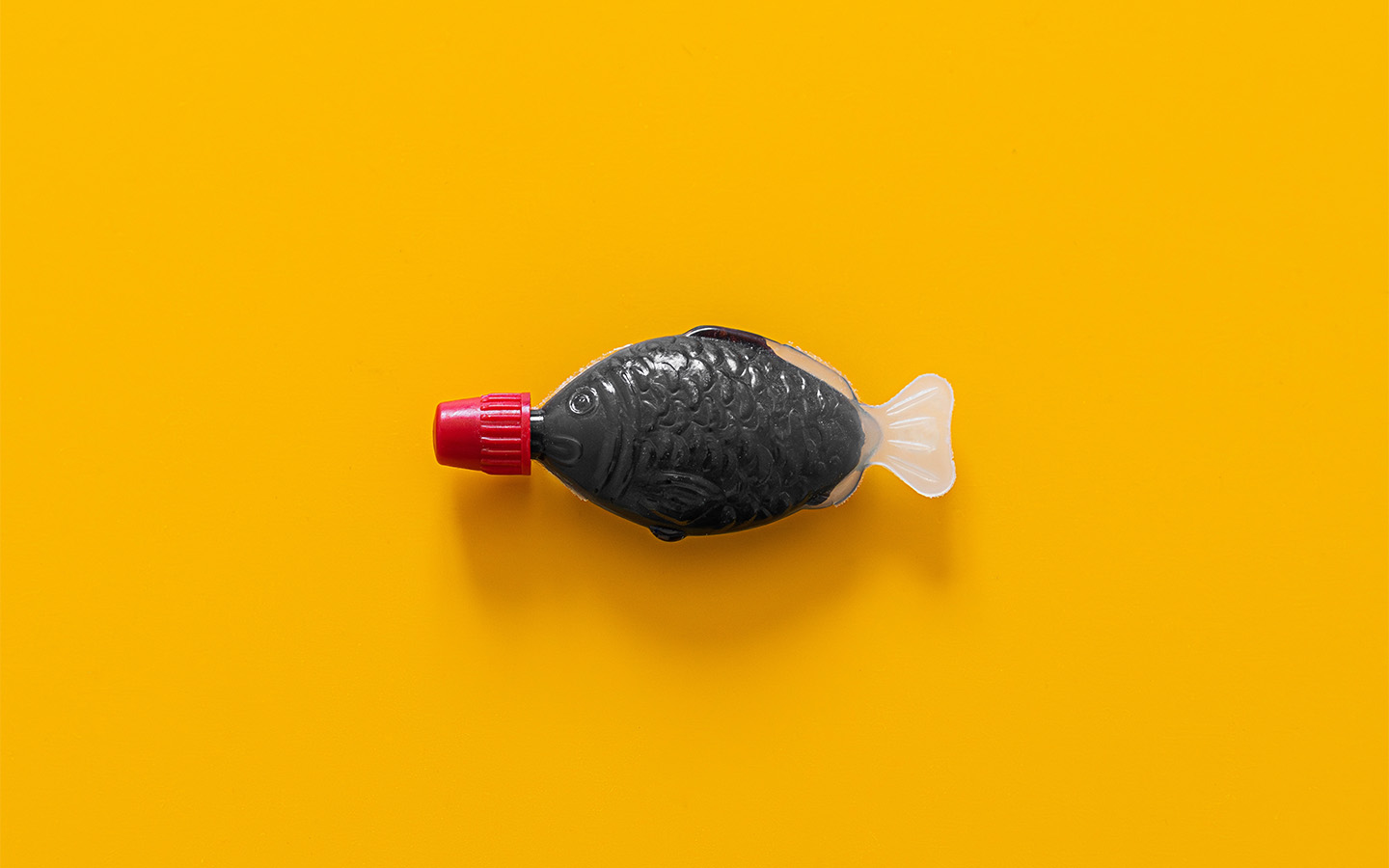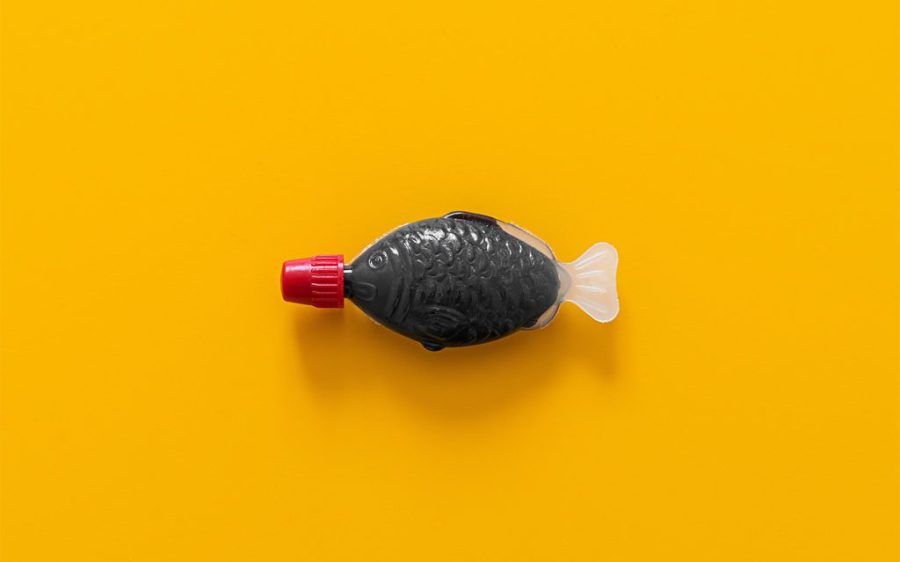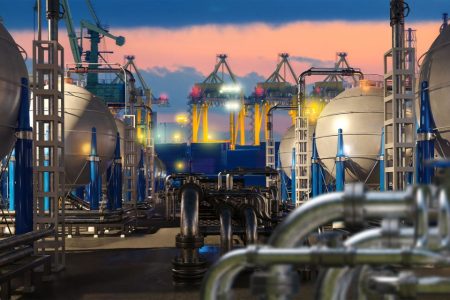An Australian state has taken aim at plastic soy-sauce dispensers in its ongoing effort to curb plastic waste. The move by South Australia marks the first ban on the iconic fish-shaped dispensers in the world, reports the Guardian.
Invented in 1954 by Teruo Watanabe, founder of the Osaka-based company Asahi Sogyo, the cute and inexpensive shoyu-tai (soy-sauce snapper) quickly spread across Japan and around the world. But these fixtures of takeaway sushi shops present a unique combination of hazards that led to the ban. Small and lightweight, they often end up blown or washed away, “making them a frequent component of beach and street litter,” Dr Susan Close, the state’s environment minister, told the Guardian.
As a fairly sturdy plastic, they also take longer to break down in the environment and the design means animals are more likely to eat it, mistaking the fish-shaped design for real food.
Under the new law, pre-filled soy sauce containers with a lid, cap or stopper and containing less than 30ml of soy sauce are banned, targeting shoyu-tai while allowing plastic sachets to remain in use. The government hopes sushi shops will replace both with bulk bottles, dispensers or other more manageable solutions.
[See more: Plastics production has increased 200-fold since 1950 with huge impacts on health]
Shoyu-tai are just the latest addition to South Australia’s ban on single-use and other plastics products, first passed in 2020 with new items added each year. Other items include single-use plastic straws, cutlery and beverage stirrers, as well as polystyrene cups, bowls, plates and containers. The state was set to ban non-compostable produce stickers this month as well, but delayed this due to supply chain issues and cost concerns for growers.
The state’s fight against plastic waste goes back many years. It was the first in Australia to ban lightweight plastic shopping bags back in 2009, avoiding an estimated 400 million bags annually. Australia’s five other states and two territories instituted their own bans in the years since, and South Australia Premier Peter Malinauskas said at a press conference that he expects the recent ban will also inspire others to take action.
Cip Hamilton, a campaign manager at the Australian Marine Conservation Society, told the Guardian he wants to see that work expand beyond single-use plastics. Strong state and federal laws to reduce production and consumption, and hold businesses accountable, he explained, are essential to protecting Australia’s marine life and coastlines.






